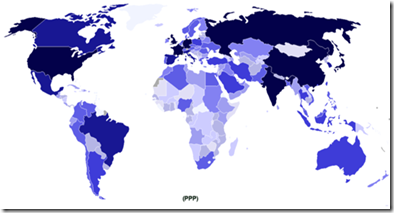System reboot
Based on the purchasing power parity (PPP) corrected GDP, the US, China and India are expected to dominate the world in the coming decades. This also means that these three countries have significant responsibilities to help create a sustainable environment for the world as well as shape the implementation of economic systems that are not biased and provide equal opportunities for everybody. Although many have been critical of the US, it is clear that it has been carrying a disproportionate share of this responsibility.
Let's look at the economic systems for example. Although there have been many missteps in the US in the last few decades – by the powerful and the regulators to destroy free market principles - it still has a significantly superior system compared to the other two. Since democracy is a necessary condition to fulfill this responsibility, one could safely exclude China from the list, at present. India, under the guise of democracy, has been riding high but one has to raise serious questions about how its economy is organized. If a dozen conglomerates control a large percentage of the GDP, with disproportionate influence on policy and some with a checkered history of legal and regulatory compliance, then it does not have a free enough system to quality. Just having democracy as a social system does not provide any advantage if the economic system is controlled by a few.
Both China and India have thus far resisted floating their currencies – a clear indication that both have a long way to go to understand and appreciate the advantages of free trade. Trade, obviously, has two parts – the physical trade and the financial part. Reduction of tariffs is good on the physical side but an elimination of them is better. But, with a rigged currency, this does not move either country to a regime of free trade. What is worse is that neither seem to understand that distortions created by a non-floating and underappreciated currency lead to incorrect allocation of capital. Labor cost advantages enjoyed by one in cheap manufacturing and the other in cheaper services exist only because of the pegged currencies. This builds up pressure over time and the ultimate and unavoidable result is a sudden and catastrophic revaluation - with predictable results on the industries that are protected.
It is time for China and India to step up to the world stage – take their share of responsibility to assure that we have a sustainable environment and a stable system. Democracy is a necessary condition for this but not sufficient. An economic system with free trade, free floating currencies and free markets is equally important. Without these conditions, both India and China are at the risk of squandering their opportunities – one by the shortsightedness and the other by the incompetence of its leaders.







